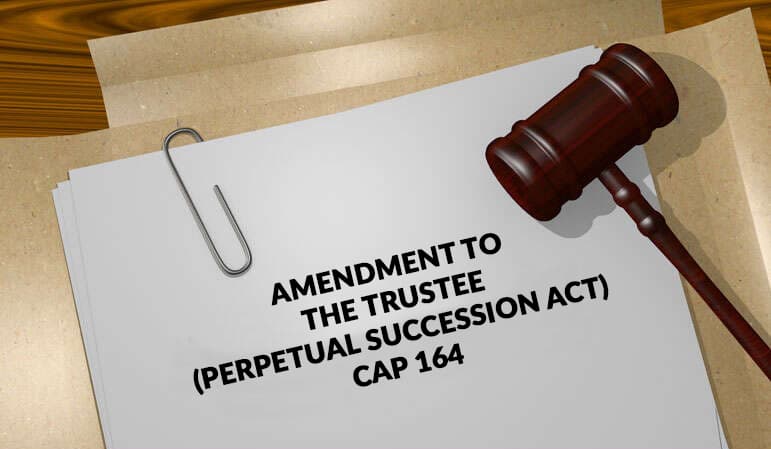Introduction
The legal profession is normally viewed with mixed perceptions by the Kenyan populace leading to biases leveled against lawyers due to misunderstood nuances and observations. Normally, one will hear of corporate or criminal lawyers, Advocate of the High Court of Kenya, Senior Counsel and other terminologies referring to lawyers. This article will delve into the common nuances held by the public and demystify the Kenyan legal practice in a bid to at least sensitize the populace.
Legal education and training
It is noteworthy that the terms ‘lawyer’ and ‘advocate’ tend to be used interchangeably in social circles but formally carry different meanings.
The legal profession involves a maximum six (6) year training period. The first phase involves a four-year Bachelors of Laws degree, referred as LLB due to the traditional name of the qualification in Latin, ‘Legum Baccalaureus’. Upon successful completion of the LLB course from a recognized local or international university, one is referred to as a ‘lawyer’. However, while a lawyer is allowed out basic legal research, write articles on legal issues, provide initial legal advisories to third parties and draft basic legal documents, he/she is barred from representing clients in court matters and drawing up formal legal documents in his/her name.
The next step in the legal qualification journey for a lawyer is enrollment to the Kenya School of Law for the Advocate Training Program (ATP). This training captures the practical aspects of legal practice which includes compulsory training as a pupil (pupillage) under a qualified advocate of at least five (5) years standing. Upon completion of the ATP tuition and pupillage, the lawyer will sit for the Bar examinations and, upon successful completion, will admitted to the Roll of Advocates in Kenya (the ‘Bar’) by the Chief Justice. Once admitted to the Bar, a lawyer is now referred to as an Advocate of the High Court of Kenya and may practice in any court in Kenya upon payment and issue of a practicing certificate by the Law Society of Kenya.
Do all lawyers go to Court?
Lawyers are categorized based on whether they carry out public or private practice from the broad categorization of whether they handle criminal or civil matters. They are further divided into their area of practice and the number of years they have accumulated in practice. Among these lawyers, some go to court while others are practice exempted.
Public practice lawyers are those employed by the national or county government, parastatals and other government bodies as legal officers as outlined below:
- The Judiciary – as the umbrella arm of government involved in interpretation and adjudication of the law as Judges, Magistrates, Adjudicators or Researchers involved in litigation of all legal disputes.
- Attorney General & Solicitor General – as the chief legal advisors to government.
- Office of the Director of Public Prosecutions – for the prosecution of crimes against the public.
- County Government Counsels – as County legal officers involved in day-to-day legal operations of county functions.
- Legal Officers in government parastatals, public bodies and independent authorities established under law.
Private practice lawyers are categorized into personal private practitioners, usually in a law firm, or in-house counsels found in companies, non-governmental organizations and other corporate bodies. These consist of:
- Corporate or Commercial Lawyers – such lawyers are involved in Civil practice matters based on areas of specialization or expertise which tend to revolve around running of businesses. These include Intellectual Property, Capital Markets, Insurance, Cybersecurity, Data Protection, Mergers and Acquisitions, Tax Compliance, Employment and Labour relations, Oil and Gas lawyers among other specializations.
- Criminal defense lawyers – they are involved in defending accused persons undergoing prosecution before court.
- In-house Counsels – they work as compliance lawyers where they advise companies or organizations, and are employed to provide appropriate legal advisory services to facilitate the of running of the company or organization’s activities.
- Family, Children and Probate lawyers – involved in matters incidental to marriages, child protection and adoption as well as succession matters.
- Conveyancing Lawyers – involved in land adjudication and transfer procedures.
- Academia lawyers – involved in teaching of trainee lawyers at universities and other institutions and carrying out legal research.
Based on the number of years of legal practice, advocates are entitled to obtain the following additional qualifications upon application as:
- Commissioner for Oaths- advocates with three (3) years post admission experience
- Notary Public- advocates with five (5) years post admission experience
- Senior Counsel- advocates with over fifteen (15) post admission experience with other factors such as exemplary practice, integrity, extensive contribution to the legal profession through publications etc. influencing the bestowment of this prestigious title.
Biases about lawyers
Biases meted on lawyers tend to be arrived at from an ignorant standpoint based on innuendos and common placed beliefs. These include;
1. Types of lawyers
As captured above, many believe that lawyers are either involved in criminal or corporate matters. From the different types of lawyers captured above, the legal profession is wide with various areas of practice allowing for specialization into areas of expertise. Hence, this cures the generalized misconceptions on the types of lawyers in various sectors and what they generally do.
2. Expensive
Most people tend to believe that lawyers are generally expensive in the provision of their services. This is however not the case as legal fees charged by lawyers is controlled under the law in terms of billing for work done and services offered. For instance, court fees are regulated by the Judiciary through the office of the Chief Justice to ensure uniformity in filing cases before court as well as fines and monetary obligations before court.
Advocate fees, are determined by the Advocates Renumeration Order which specifies the extent to which an advocate may charge to handle a clients matter subject to terms and conditions such as value of the subject matter, court attendances and other ramifications. This however excludes charges for commercial and corporate matters which are agreed between the advocate and client based on the work performed.
3. Complicated
The legal practice is shrouded by belief that lawyers are complicated, with a habit of speaking ‘heavy’ English full of legal jargon and Latin terminologies. During training, lawyers are taught the importance of using simple, plain and basic language for purposes of addressing court and clients. This is also a requirement in drafting pleadings and court documents used in court in a bid to ensure principles of natural justice on effective participation of all parties to a case.
Conclusions
Based on the above, it is clear that the legal profession is heavily biased due to misconceptions arrived at from ignorance and lack of proper knowledge. Due to this, many startups, SMEs and the general populace tend to overlook the requirement for lawyers until its too late. Lawyers are not only needed for settlement of disputes but for advisory purposes as well in order to avoid disputes in the first place.
The Judiciary forms the umbrella of legal practice whose key mandate is the interpretation and application of set laws in a just manner with a view to protecting the rights and liberties of all, thereby facilitating the attainment of the ideal rule of law.
Netsheria’s lawyers are fully trained and specialized in areas key in the establishment, growth and expansion of your business operations ensuring you focus on running your business while we handle the legal business as usual stuff.
To learn more about how Netsheria can help you scale up your business, visit our website or contact us today.






